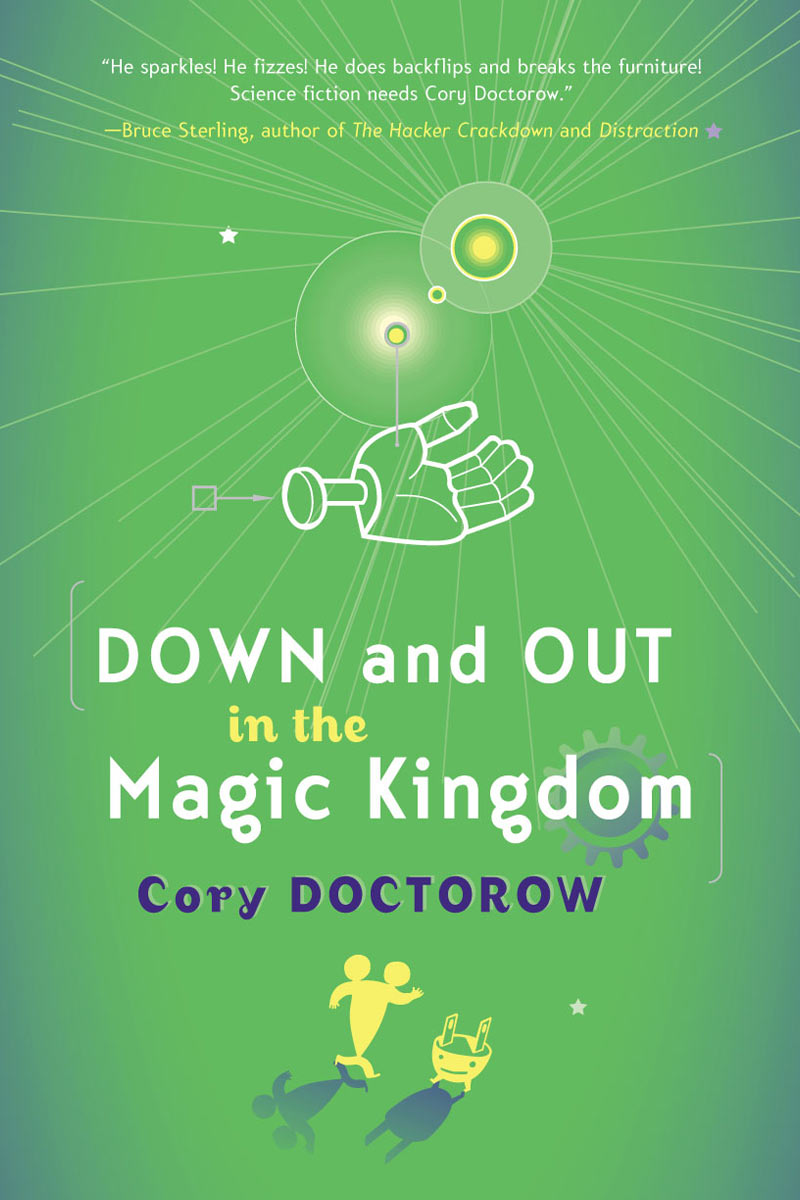Middle-aged entrepreneur Alan, for whom mother is a washing machine and father is a mountain, has moved into one of Toronto’s more interesting neighborhoods. The brother Alan and his other brothers killed years ago has returned to hound the family, and those other brothers, who are nesting dolls, show up on Alan’s doorstep starving because the innermost brother has vanished. A next-door neighbor has wings that her boyfriend cuts back regularly so she can pass for normal. In the midst of such ordinary oddness, getting involved in a scheme to provide free wireless Internet to the neighborhood and eventually the city seems reasonable, even when it’s masterminded by a crusty punk whose gear comes from Dumpster diving. Eventually, Alan concludes that he must go back to the mountain, a home he hasn’t visited in years. The combination of Alan facing up to his family and their strangeness, the damage his dead brother will do to everything Alan cares about, and Doctorow’s inescapable technological enthusiasm eventuates in a lovely, satisfying tale.
Regina Schroeder, Booklist




























